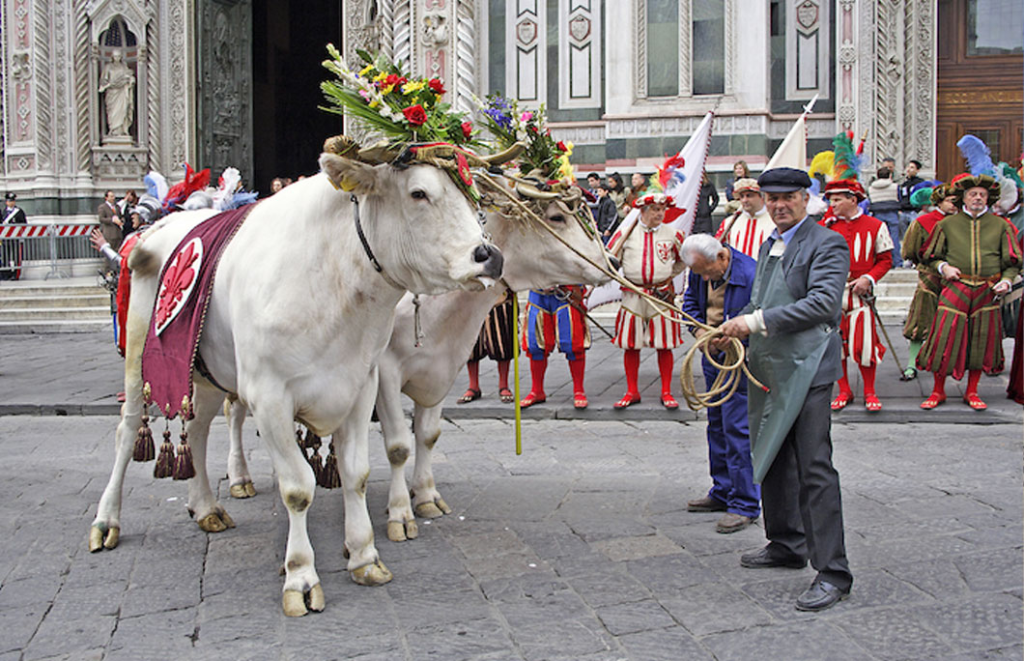
The Rise of Sustainable Tourism in Italy
Since 2009, Italy has been at the forefront of sustainable tourism, a movement that combines the joy of travel with the responsibility of preserving the environment and supporting local communities. This shift towards eco-friendliness is not just an economic strategy; it’s a holistic approach to ensure that Italy’s natural beauty and cultural heritage continue to thrive.
Table of Contents
1. Employment Generation through Sustainable Tourism in Italy

Sustainable tourism has significantly contributed to job creation across Italy. The sector’s growth has opened opportunities in hotels, transportation, local crafts, and services. This employment boost has been vital in sustaining local economies and enhancing the livelihoods of many Italians.
2. Preserving Italian Customs and Traditions

Italy’s rich cultural tapestry is being diligently preserved through sustainable tourism. Lesser-known regions are gaining attention, allowing for the protection of local customs, culinary arts, and unique regional traditions. These efforts ensure that Italy’s diverse cultural heritage remains vibrant and accessible.
3. Boosting Italy’s Economy with Responsible Sustainable Tourism in Italy
The economic impact of sustainable tourism in Italy is profound. Revenue generated from tourism-related activities, including entrance fees to attractions and taxes on services, contributes significantly to the national economy. This financial input helps in maintaining and enhancing tourist sites and local infrastructure.
4. Sustainable Tourism Driving Infrastructure Development
Infrastructure in Italy has seen remarkable improvements, driven by the needs of sustainable tourism. Upgrades in transportation, energy, and public facilities not only cater to tourists but also improve the quality of life for residents, showcasing the far-reaching benefits of eco-friendly tourism practices.
5. Enhancing National Security for Community Benefit
Focused efforts on tourist safety have led to improved national security measures. This has indirectly benefited local communities, providing a safer and more secure environment. Additionally, educational initiatives on environmental conservation and emergency response have empowered communities to deal with natural challenges effectively.
6. Cultural Preservation: A Core Aspect of Sustainable Tourism
As Italy reopens to the world, the importance of sustainable tourism in preserving its historical and cultural identity cannot be overstated. Conscious travel choices help maintain the integrity of Italy’s heritage sites and ensure the longevity of its rich cultural traditions.
7. Local Economy Support through Eco-Conscious Choices
Choosing locally-owned accommodations and engaging in authentic local experiences not only enriches the travel experience but also injects capital directly into the local economy. This approach fosters a sustainable cycle of growth and development within the communities.
8. Italy’s Commitment to Nature and Sustainability
Italy’s diverse landscapes, from serene beaches to rugged mountains, are a testament to its commitment to environmental sustainability. The country offers a plethora of eco-friendly activities and destinations that cater to every type of traveler while preserving its natural beauty.
Serene Beaches and Coastal Conservation
Italy’s coastline is dotted with stunning beaches, many of which have earned the Blue Flag designation for their commitment to environmental management and water quality. Sustainable practices in these areas include limiting development to protect natural habitats and promoting eco-friendly water sports.
The Majestic Mountains and Sustainable Tourism
The Italian Alps and Apennines are prime examples of sustainable tourism in mountainous regions. These areas offer eco-lodges and responsible trekking options, allowing visitors to enjoy the breathtaking scenery without harming the environment. Efforts to maintain trails and support responsible mountain tourism are evident throughout these regions.
Protected Natural Parks and Biodiversity
Italy is home to numerous national parks and nature reserves, such as the Cinque Terre National Park and the Dolomites, a UNESCO World Heritage site. These parks not only offer incredible natural beauty but also play a critical role in biodiversity conservation. Sustainable tourism in these areas includes regulated access to ensure minimal impact on the environment.
Agricultural Tourism and Local Produce
Agritourism is a growing trend in Italy, combining rural life with tourism. Visitors can stay on working farms and vineyards, experiencing the local lifestyle and cuisine. This approach supports local agriculture and provides an immersive experience in sustainable living.
Eco-Friendly Urban Exploration
Italian cities are increasingly adopting sustainable practices. For example, Venice has implemented measures to control tourism impact, while cities like Milan and Rome offer bike-sharing programs and green spaces for eco-conscious urban exploration.
Sustainable Cultural Events
Italy’s rich cultural calendar includes many events that emphasize sustainability. From eco-friendly film festivals to traditional festivals that celebrate local heritage, these events are designed to have a minimal environmental footprint while showcasing Italy’s vibrant culture.
Renewable Energy Initiatives
Italy is also a leader in renewable energy, with significant investments in solar, wind, and hydroelectric power. This commitment extends to the tourism sector, where many hotels and resorts are using renewable energy sources to reduce their carbon footprint.
FAQs
Q: What are some must-visit sustainable destinations in Italy?
A: Italy is filled with sustainable destinations. Places like Cinque Terre, with its beautiful trails and protected marine area, or the Alpine regions, offering eco-friendly ski resorts, are great examples. Also, many cities like Venice and Florence are encouraging sustainable tourism practices to preserve their historic sites.
Q: How does sustainable tourism impact the environment in Italy?
A: Sustainable tourism in Italy aims to reduce environmental impact. This includes efforts to preserve natural landscapes, reduce pollution, and maintain biodiversity. Responsible tourism helps ensure that Italy’s scenic beauty and natural habitats are preserved for future generations.
Q: Are there specific initiatives or policies in Italy promoting sustainable tourism?
A: Yes, Italy has implemented various initiatives and policies to promote sustainable tourism. These include regulations for conserving natural areas, promoting eco-friendly transportation options, and supporting local businesses that adhere to sustainable practices.
Q: Can sustainable tourism in Italy be affordable?
A: Absolutely. Sustainable tourism often involves staying in locally-owned accommodations and participating in community-based activities, which can be more affordable than conventional tourism options. Additionally, many natural attractions and cultural experiences in Italy are low-cost or free.
Q: How can tourists contribute to preserving Italy’s cultural heritage?
A: Tourists can contribute by visiting heritage sites responsibly, respecting local customs and traditions, and purchasing authentic local handicrafts. Engaging with local guides and attending cultural events also helps support and preserve Italy’s rich heritage.
Q: What are some tips for responsible travel in Italy?
A: Responsible travel tips include using public transport, reducing waste, respecting wildlife and natural areas, and being considerate of local customs. Also, planning visits during off-peak seasons can help reduce overcrowding at popular sites.
Q: How can I learn about sustainable practices while in Italy?
A: Many tour operators and local tourism offices in Italy offer information and tours focused on sustainability. Participating in workshops or guided tours can provide valuable insights into local eco-friendly practices and conservation efforts.
Q: Is it possible to have a luxury travel experience while being sustainable in Italy?
A: Yes, sustainable luxury travel is possible in Italy. Many luxury accommodations and services now incorporate sustainable practices, offering high-end experiences that are mindful of environmental and cultural impacts.